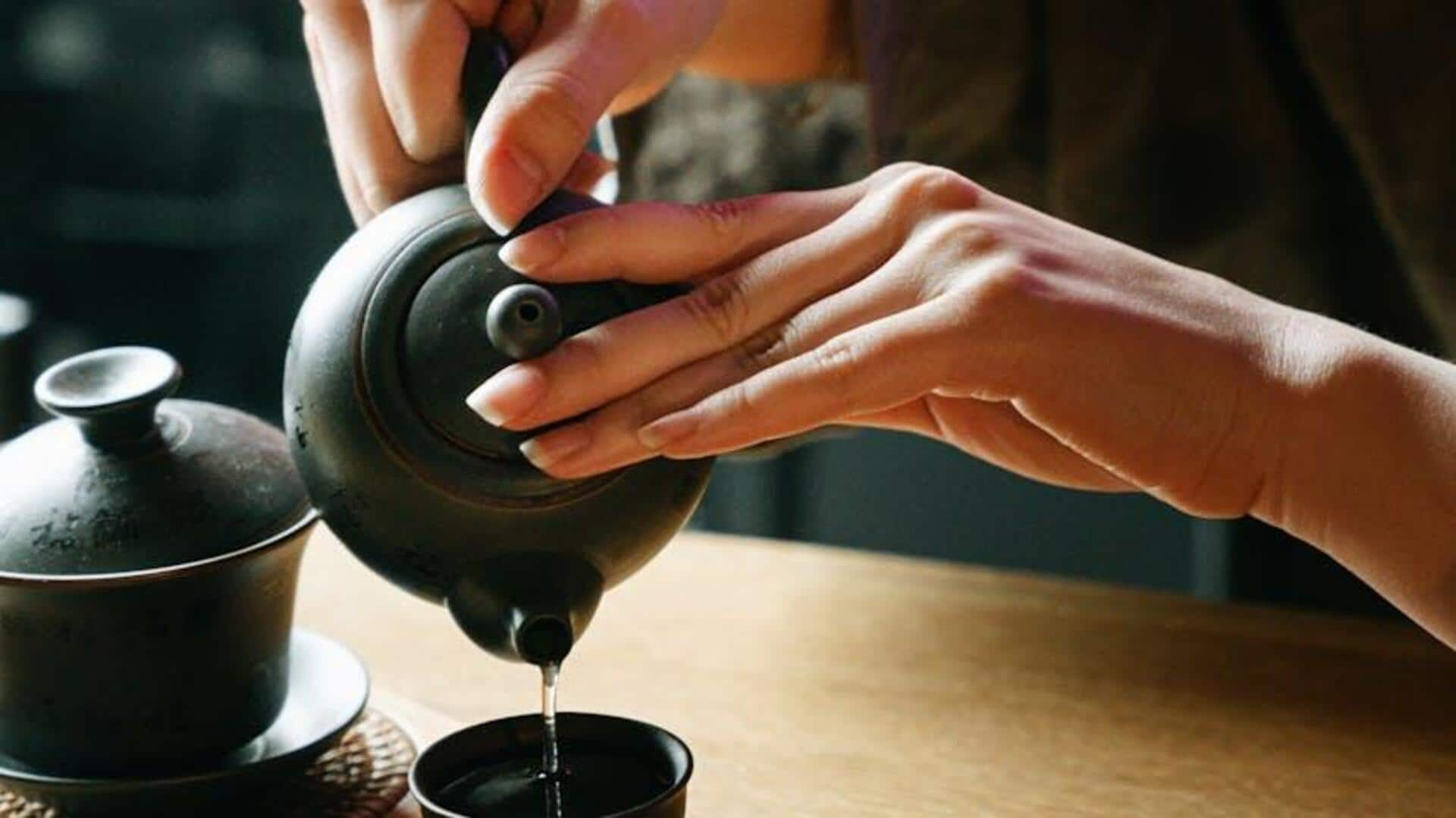
5 unique tea traditions from Japanese culture
What's the story
Japanese tea culture is steeped in history and tradition, providing a fascinating insight into the nation's cultural heritage. From the mindful preparation of matcha to the tranquil vibes of a tea ceremony, these practices are a testament to Japan's love for tea. Each tradition is significant in its own way and has been preserved through generations, shaping Japan's cultural identity. Here are five unique tea traditions that define Japanese culture.
#1
The art of chanoyu
Chanoyu, or the Japanese tea ceremony, is a ritualistic practice focused on preparing and serving matcha. The practice revolves around the principles of harmony, respect, purity, and tranquility. Participants perform exacting movements while admiring the beauty of utensils and the surroundings. The host carefully whisks matcha with a bamboo whisk in a peaceful setting, promoting mindfulness and bonding among guests.
#2
Sencha Do: Everyday green tea ritual
Sencha Do centers around savoring sencha green tea in daily life. Unlike matcha that features in formal ceremonies, sencha is brewed from whole leaves and sipped casually at home or social gatherings. This practice emphasizes simplicity and accessibility while retaining an appreciation for quality leaves sourced from different prefectures across Japan.
#3
Kintsugi: Embracing imperfection in teaware
Kintsugi, for example, is all about repairing broken teaware with lacquer mixed with powdered gold or silver—turning flaws into beautiful features instead of burying them away completely! The philosophy fits in perfectly with broader ideas like wabi-sabi (embracing imperfection) found throughout most elements pertaining not just specifically to drinking but also living life itself!
#4
Nodate: Outdoor tea gathering experience
Nodate celebrates outdoor tea gatherings, especially during cherry blossom season. It's a chance to enjoy tea in nature, fostering connections and appreciating the moment. These gatherings, set in parks or gardens, offer a serene environment for participants to relax and engage with each other and the surrounding beauty without haste.